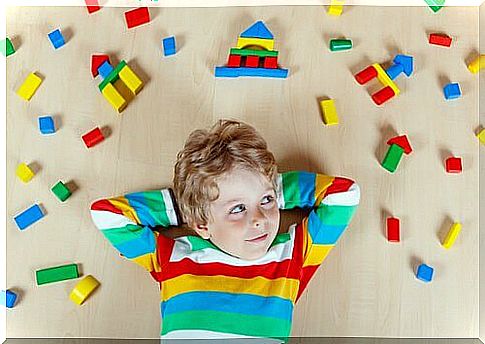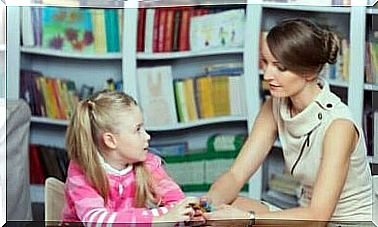Pressured Children, Perfect Children?

“Why didn’t you get ten exams?”, “At your age I was the best student in my class”, “You have to work harder and harder”, “Until you’re perfect in math, don’t stop studying”, “You can’t make mistakes”… Pressured children hear such sentences often during his childhood and adolescence.
Of course, parents of children wish them only the best and encouraging children to be progressive parents is not meant to cause them suffering. Behind the pressure and expectations, however, hides unresolved issues about the adult past. Untreated things may have caused them a complex and a similar attitude is likely to be repeated for their own offspring.
Pressured children: when perfection is not enough
After studying night and day for several weeks, Pertti finally got the ten that his parents demanded of him. When he returned home with the exam and was happy with his achievement, Pert’s parents looked at him and instead of congratulating, said, “we hope that from now on these are the only grades you will bring with you from school”.

Aune is a girl whose parents forced her to start studying dance. Ever since Aune was little, she has been wearing narrow-toed shoes and tying her hair neatly. He attends every hour and remains to practice in front of the mirror even after hours. At home, he listens again and again only to the melody he needs to learn for the year-end performance.
On a long-awaited day, the whole family comes to the theater to watch Aune’s performance. When the performance is over, the parents go to him and warn, “Next time, it’s best for you to do better than your friend,” even though the teacher had chosen Aune for the lead role.
Mary and Erk’s children should attend piano lessons and play tennis because they were their parents ’own dreams when they were little. Kids don’t like keyboards or rackets but it doesn’t matter. They need to attend classes because that is the will of their parents. The parents hope that the children will become successful pianists and tennis players because the parents themselves did not have the opportunity to do so.
The situations mentioned above may seem like they are just a product of the author’s imagination, but they are sadly true. In many cases, parents do not realize that by wanting their children to be perfect, they will harm them in a way that will bother them for the rest of their lives.
Encouraging or pressuring children?
Of course, many parents do not intend to mistreat their little ones, but instead of their ignorance, parents create an adult of the future with many complexes, sadness, and an inability to accept their mistakes.
When do parents stimulate their children and when do they put pressure on them? The thin line between these two acts is based on attitude. In order for you to better understand this, Madeline Levine explains the difference between the two in her book “The Price of Privilege”. J os adults have contact with their children and they take part in children’s activities in a process referred to as “stimulation” is used.
If personal desires take precedence over a child’s well-being, or while an adult is demanding of their child, he or she has himself or herself focused on another activity such as his or her own work or household chores, it is “pressure”.

Is the pressure something new?
The way of the 21st century is that young children have dozens of club activities from an early age: studying English, sports, music, painting, patrolling, dancing, and the list just goes on. On the one hand, this is because parents work many hours a day and cannot take care of their children, and on the other hand, they feel that this “brings out the best in children”.
It is not a bad thing that children train or that they can speak another language. What can’t be entirely right is that they are pressured or patted to do something they don’t like. And if they don’t succeed perfectly, they’re “naughty kids, ” “ungrateful,” or “deserve nothing”.
How to avoid coveting “perfect children”
Before attempting to have ideal children, we should ask what we think is perfect. Wouldn’t it be better for kids to be happy doing what they like? Of course, there are limits. We are not talking about dropping out of school or not going to college.

Wishing great things to our children is typical of all parents. But what price must be paid to achieve them? Encourage your children to do their best outside of results. Do not use negative adjectives with them when they fail to get the best result. Ask how they feel when they attend classes or what they would like to do when they get out of school.
In this way, you will raise future adults who can overcome all the obstacles they face and reach their full potential without comparing themselves to each other and, above all, being happy and satisfied with the future they have chosen.









